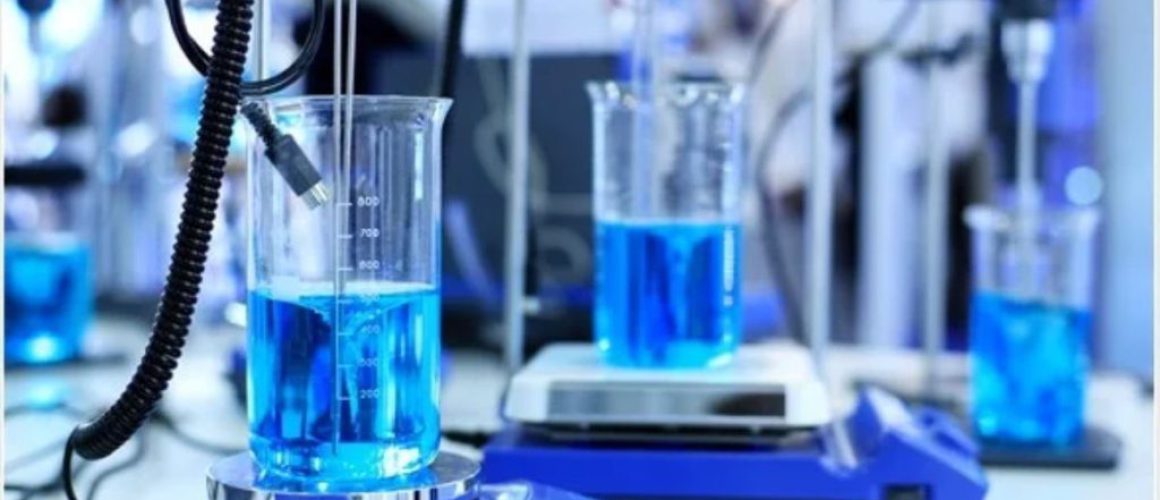The Role of Pharmacology in Medical Technology
Table of Contents
Disclaimer: The information contained in this blog post is intended for educational purposes only and is not a substitute for professional medical advice. Always seek the advice of your healthcare provider with any questions you may have regarding a medical condition or treatment.
Introduction
Pharmacology, the study of drugs and their effects on the body, is a cornerstone of medical technology. It’s a fascinating field that bridges the gap between the microscopic world of molecules and the macroscopic world of clinical practice. As a medical technology student, I’ve come to appreciate the intricate dance between pharmacology and technology, and how they work in concert to improve patient care. In this post, we’ll delve into the role of pharmacology in medical technology, with a focus on drug discovery and development, personalized medicine, and the burgeoning field of artificial intelligence.
Pharmacology is a vast field, encompassing everything from the study of molecular drug interactions to the clinical management of medications in patients. It’s a discipline that requires a deep understanding of biology, chemistry, and medicine. In the realm of medical technology, pharmacology plays a pivotal role, providing the knowledge base for the development of new diagnostic tools, therapies, and procedures.
The intersection of pharmacology and medical technology is a dynamic space, ripe with opportunities for innovation. As we continue to make strides in these fields, we’re able to push the boundaries of what’s possible in healthcare. From the development of new drugs to the use of artificial intelligence in drug discovery, the synergy between pharmacology and medical technology is driving the future of medicine.
The Intersection of Pharmacology and Medical Technology
Drug Discovery and Development
The journey from a promising drug candidate to a market-ready pharmaceutical product is a long and complex one. It’s a process that involves numerous stages, from initial research and discovery to preclinical testing and clinical trials. Medical technology plays a crucial role in this journey, providing the tools and techniques that make drug discovery and development possible.
One of the key areas where medical technology aids in drug discovery is in high-throughput screening (HTS). This technique allows researchers to quickly assess the biological or biochemical activity of a large number of compounds. By automating this process, we’re able to rapidly identify potential drug candidates and accelerate the pace of drug discovery.
But it’s not just about speed. Medical technology also improves the efficacy of drug discovery. With advancements in genomics and bioinformatics, we’re able to gain a deeper understanding of how potential drugs interact with their target molecules in the body. This knowledge allows us to design more effective drugs, reducing the risk of side effects and improving patient outcomes.
Personalized Medicine
The concept of personalized medicine is a game-changer in healthcare. It’s an approach that tailors medical treatment to the individual characteristics of each patient. At the heart of personalized medicine is pharmacogenomics, the study of how a person’s genetic makeup influences their response to drugs.
Pharmacogenomics is a shining example of the intersection of pharmacology and medical technology. By using genetic testing, we can identify specific genetic markers that predict a patient’s response to a particular drug. This allows doctors to prescribe the most effective drugs for each individual patient, improving treatment outcomes and reducing the risk of adverse reactions.
But personalized medicine isn’t just about improving drug efficacy. It’s also about prevention. By understanding a patient’s genetic predisposition to certain diseases, we can implement preventative measures early on. This shift from a reactive to a proactive approach in healthcare wouldn’t be possible without the advancements in pharmacology and medical technology.
The Impact of Artificial Intelligence
Artificial intelligence (AI) is making waves in many industries, and healthcare is no exception. In the field of pharmacology, AI has the potential to revolutionize the way we discover and develop drugs. By leveraging the power of machine learning algorithms, we’re able to analyze vast amounts of data more quickly and accurately than ever before.
AI can be used to predict how different drugs will interact with various biological systems, providing valuable insights into potential therapeutic effects and side effects. This not only accelerates the drug discovery process but also improves the safety and efficacy of new drugs.
Moreover, AI is not just limited to drug discovery. It’s also being used to design new drugs. Machine learning algorithms can analyze the structure of known drugs and use this information to design new compounds with similar properties. This opens up new possibilities for the development of novel drugs to treat diseases that currently have no effective treatments.
The impact of AI on pharmacology and medical technology is profound. It’s not just about improving existing processes, but also about creating new opportunities for innovation. As we continue to harness the power of AI, we can expect to see even more exciting developments in the future.
Conclusion
The intersection of pharmacology and medical technology is a dynamic and exciting field. It’s a space where science and technology come together to improve patient care, from the discovery and development of new drugs to the implementation of personalized medicine.
As a medical technology student, I’m constantly amazed by the advancements in this field. The more I learn, the more I realize how much potential there is for innovation. With the continued development of new technologies and a deeper understanding of the human body at a molecular level, I believe we’re just scratching the surface of what’s possible.
Pharmacology and medical technology are deeply intertwined, each field contributing to advancements in the other. As we continue to push the boundaries of what’s possible, I’m excited to see where this journey will take us. The future of healthcare is bright, and I’m thrilled to be a part of it.
Sources
Sources that support the article “The Role of Pharmacology in Medical Technology”:
- Artificial intelligence with multi-functional machine learning platform development for better healthcare and precision medicine by Zeeshan Ahmed, K. Mohamed, Saman Zeeshan, Xinqi Dong. This paper discusses the implementation of artificial intelligence in healthcare and how it can lead to significant improvements in providing real-time, better personalized, and population medicine at lower costs. It supports the discussion on the impact of artificial intelligence in pharmacology.
- Application of Artificial Intelligence Technology in Oncology: Towards the Establishment of Precision Medicine by Ryuji Hamamoto, Kruthi Suvarna, Masayoshi Yamada, Kazuma Kobayashi, Norio Shinkai, M. Miyake, Masamichi Takahashi, S. Jinnai, Ryohei Shimoyama, A. Sakai, Ken Takasawa, Amina Bolatkan, K. Shozu, A. Dozen, Hidenori Machino, Satoshi Takahashi, Ken Asada, M. Komatsu, J. Sese, S. Kaneko. This paper introduces the history of AI technology and the current state of medical AI, especially in the oncology field, and discusses the possibilities and challenges of AI in the field of oncology. It supports the section on the impact of artificial intelligence in pharmacology.
- Artificial Intelligence in Colorectal Cancer Screening, Diagnosis and Treatment. A New Era by Athanasia Mitsala, C. Tsalikidis, M. Pitiakoudis, C. Simopoulos, A. Tsaroucha. This paper discusses how AI-assisted techniques in routine screening represent a pivotal step in declining incidence rates of colorectal cancer. It supports the section on the use of AI in disease diagnosis and treatment.
- Recent advances in phenotypic drug discovery by D. Swinney, Jonathan A. Lee. This paper discusses recent advances in the implementation and de-risking of phenotypic drug discovery (PDD) and the potential for artificial intelligence. It supports the section on drug discovery and development.
Sean Schepers is a third-year Medical Technology student at Mahidol University with a passion for all things health and medicine. His journey into the world of medicine has led him to explore various fields. Sean's blog posts offer a unique perspective, combining his academic insights with personal experiences. When he's not studying or blogging, Sean enjoys keeping up with politics and planning his future career in medicine.
In addition to his studies, Sean serves as the chairman of the Rights, Liberties, and Welfare Committee, a role that reflects his commitment to advocacy and social justice. Beyond his academic pursuits, Sean offers tutoring services in English and Biology, further demonstrating his dedication to education and mentorship. His journey is one of continuous discovery, and he invites others to join him as he explores the dynamic and transformative world of medical technology.


